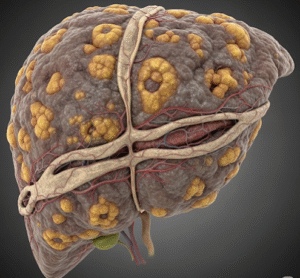Overview
Sydenham chorea is a neurological disorder characterized by rapid, involuntary movements, muscle weakness, and emotional disturbances. It typically affects children and adolescents and is most often associated with rheumatic fever following a streptococcal infection. In Korea, early diagnosis and treatment of streptococcal infections have helped reduce the incidence, but it remains an important condition in pediatric neurology and cardiology care.
What is Sydenham Chorea?
Sydenham chorea (also known as St. Vitus dance) is a complication of rheumatic fever that occurs as a delayed autoimmune response to group A streptococcal infections, such as strep throat. It affects the central nervous system, particularly the basal ganglia, which control voluntary motor movements. The condition may appear weeks or even months after the initial infection.
Symptoms
- Rapid, jerky, involuntary movements (chorea), especially of the face, hands, and feet
- Muscle weakness or hypotonia
- Clumsiness or difficulty with voluntary movements
- Emotional instability, irritability, or personality changes
- Difficulty speaking clearly (dysarthria)
- Trouble with handwriting or school tasks
- Symptoms often worsen with stress and disappear during sleep
Causes
- Autoimmune reaction following infection with group A streptococcus
- The immune system mistakenly attacks the brain’s basal ganglia due to molecular mimicry
- Often linked to rheumatic fever, a serious inflammatory disease
Risk Factors
- Recent untreated or partially treated strep throat or scarlet fever
- Age (commonly affects children between 5–15 years)
- Female gender (girls are more frequently affected)
- History of rheumatic fever
- Genetic predisposition may play a role
Complications
- Recurrence with future streptococcal infections
- Long-term motor coordination issues in rare cases
- Association with rheumatic heart disease (especially if rheumatic fever was not treated properly)
- Emotional and psychological distress
- Rarely, permanent neurological damage
Prevention
- Prompt diagnosis and complete antibiotic treatment of strep throat
- Long-term prophylactic antibiotics (usually penicillin) in children with a history of rheumatic fever
- Public awareness and access to pediatric healthcare in Korea have helped reduce recurrence
- Regular check-ups for children with known history of rheumatic fever
Treatment Options in Korea
- Diagnosis
- Clinical evaluation of movement patterns
- History of recent streptococcal infection or rheumatic fever
- Blood tests (ASO titer, anti-DNase B)
- Echocardiogram to assess for rheumatic heart disease
- MRI or CT scan may be used to rule out other neurological causes
- Medications
- Antibiotics: Penicillin or other antibiotics to eliminate any remaining streptococcal bacteria
- Anti-inflammatory treatments: Corticosteroids (e.g., prednisone) to reduce inflammation
- Anticonvulsants or antipsychotics: Haloperidol, valproic acid, or risperidone may be used to control severe movements
- Immunomodulatory therapy: In resistant or recurrent cases, IVIG or plasmapheresis may be considered
- Rehabilitation and Support
- Occupational therapy to improve fine motor skills
- Speech therapy for children with dysarthria
- Psychological counseling to address emotional instability or anxiety
- Pediatric and Neurology Care in Korea
- Hospitals like Seoul National University Hospital, Asan Medical Center, and Samsung Medical Center offer advanced pediatric neurology and cardiology departments
- Coordinated care between pediatricians, cardiologists, neurologists, and psychiatrists
- Use of standardized Korean clinical guidelines for managing post-streptococcal complications
- Long-term Management
- Monthly or bi-monthly penicillin prophylaxis to prevent recurrence of rheumatic fever
- Regular cardiac monitoring to detect or prevent heart valve damage
- School accommodations and supportive services as needed












